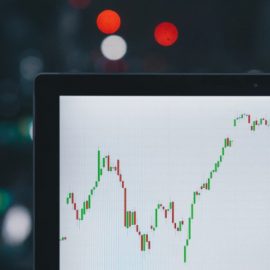
How do investors choose between being risk-tolerant and risk-averse? What role do greed and fear play in an investor’s decision?
In Mastering the Market Cycle, Howard Marks discusses how oscillations in these cycles impact investors’ psychology. In particular, he explains how shifts in foundational cycles lead to a psychological cycle between fear and greed that, in turn, causes a cycle between risk tolerance and risk aversion.
Below we’ll explain the psychology of investors.
The Cycle Between Greed and Fear
According to Marks’s explanation of the psychology of investors, the psychological cycle that influences the securities market most is the cycle between greed and fear. He argues that the most promising parts of foundational cycles—such as economic growth, high profits, and easy access to credit—fuel investors’ greed, causing them to act imprudently, which in turn contributes to downswings in foundational cycles that increase fear.
For example, when the economy is thriving and profits are high, investors are more likely to be flush with cash. Because of readily available credit, some may even borrow money to invest, convinced that borrowing money represents a path to outsized returns. In this environment, greed runs rampant as investors mistakenly think they’re guaranteed to earn money through aggressive investing strategies.
But, according to Marks, this greed can’t last forever. On the contrary, he suggests that some investors will eventually be deterred from investing upon realizing how greed has led to risky, speculative investments. As this contrarian view becomes more common, fear eventually infiltrates the securities market. In turn, this fear can influence the foundational cycles—lenders might become reluctant to issue credit, for example, leading to slowed economic growth.
The Cycle Between Risk-Tolerance and Risk-Aversion
Marks contends that as a result of the fluctuations between greed and fear, most investors alternate between being overly risk-tolerant and overly risk-averse. He explains that risk tolerance leads to inflated securities prices, eventually leading investors to become risk averse because of these excessive prices.
First, Marks writes that when investors become greedy—which, as we’ve seen, occurs whenever the economy prospers, profits rise, and credit is accessible—they’re more willing to purchase stocks and other securities at a premium. For example, even if Apple’s share price is exceedingly high, greedy investors might reason that it’ll keep increasing, meaning they think the currently inflated share price is moot because they’ll earn a significant profit regardless.
The upshot is that when investors believe the securities market poses the least risk (that is, when they bid up prices), it actually carries the most risk because securities are overpriced. According to Marks, savvy investors will realize that the market is overpriced, leading them to begin selling securities and dropping their prices. As other fearful investors see these initial price drops, they’ll likewise sell securities, causing a cascading series of price drops.
Marks contends that over time, these decreases in price will cause investors to become risk averse—they’ll become convinced that prices can only drop further, making them reluctant to purchase securities that are actually a good bargain. Thus, when the securities market is least risky because it’s underpriced, investors tend to be most risk averse.






